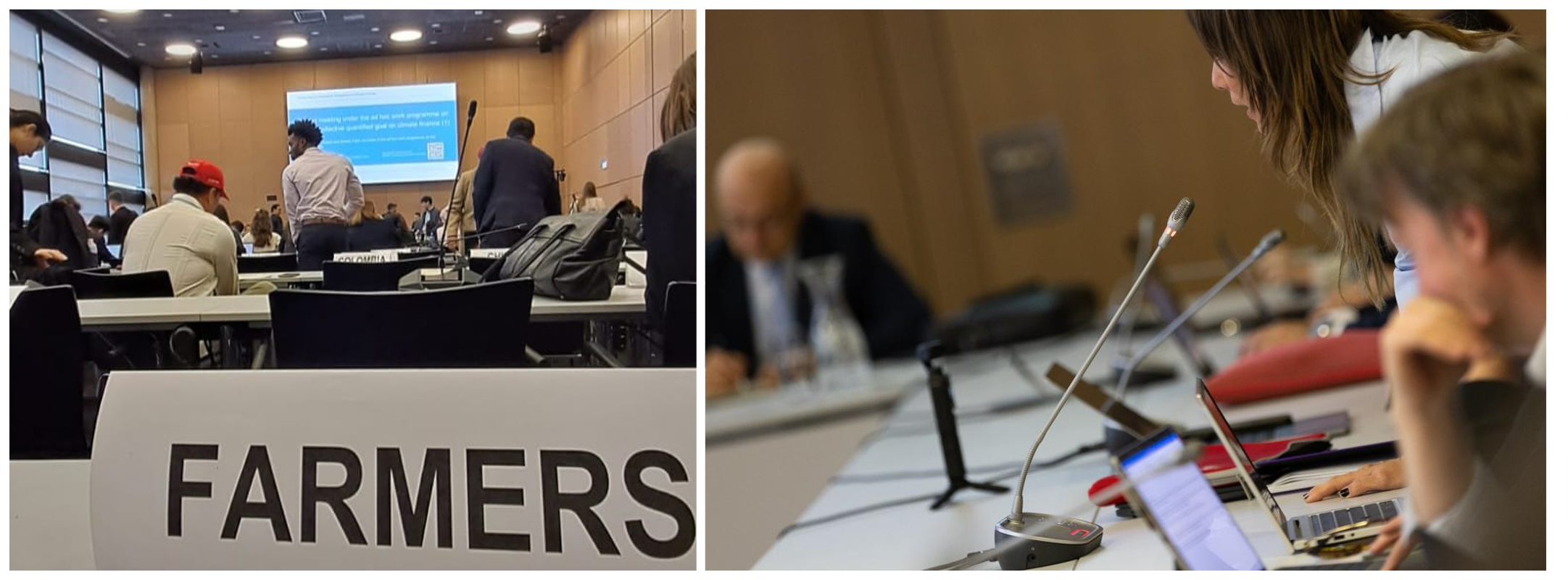A crucial opportunity to network and amplify the voices of family farmers in climate action.
Bonn, Germany – The international climate community gathered in Bonn for the 60th sessions of the Subsidiary Bodies of the United Nations Framework Convention on Climate Change (UNFCCC) from June 3-13, 2024. These sessions are a key mid-year event, setting the stage for COP29 in Baku, Azerbaijan. Discussions in Bonn are essential in preparing for the critical negotiations in Baku, making this gathering a vital opportunity to network and amplify the voices of family farming organizations from around the world.
In Bonn, WRF has emphasized the importance of recognizing the catalytic role of family farmers in climate action, in food systems transformation and protecting biodiversity. Family farmers are already implementing sustainable practices on their fields and farms, and they possess valuable technologies and knowledge that can shape a more sustainable future.
“The demands and needs of family farmers need to be heard on the global fora, ensuring that they have a seat at the negotiating and decision-making tables. Public policies, National Adaptation Plans (NAPs), and Nationally Determined Contributions (NDCs), among others, must include family farming. To make this a reality, more and better funds are essential to support the transition,” states Elena Aguayo, WRF Policy Office, from Bonn meetings.
Globally, 439 million small-scale producers invest around $368 billion annually in climate adaptation actions from their own resources but receive only 0.3% of international climate funds. As negotiations on the new financial target begin in Bonn, it is crucial that new commitments increase direct access to these funds for family farmers’ organizations.
Key Activities in Bonn
With Bonn bustling with delegations from around the world, the WRF worked in coordination with other family farming organizations, including the WRF member Asian Farmers Association (AFA), to influence the international climate agenda.
We actively participated in the official negotiations on the Sharm el-Sheikh agriculture and climate change initiative and the launch of the Harmoniya Initiative. We highlighted the critical role of family farmers and advocated for more funds in the discussions on the New Collective Quantified Climate Finance Goal (NCQG).
These days also featured bilateral meetings with other relevant institutions such as IICA or UN Foundation, informal networking coffees, and even interviews with the official communication channels of UN Climate Change in Spanish, English, and Russian.
What’s next?
Participation in Bonn is a step in an ongoing process leading to COP29 in Baku and COP30 in Belém, Brazil. The WRF’s roadmap to COP30 will include workshops and training for family farmers’ organizations, agreements with multiple institutions to collect data demonstrating our common position’s importance, follow-ups on key official negotiations for family farming (Sharm el-Sheikh, NAPs and NDCs, the Loss and Damage Fund, or the NCQG among others), and the creation of synergies with the COP29 and COP30 Presidencies and initiatives such as FAO FAST or Harmoniya.
The WRF will continue to ensure that the demands and needs of family farmers are heard and considered in discussions on climate change and biodiversity. We advocate for adequate public policies and increased allocation of funds directly benefiting farming communities on the ground.



